Tsinghua-Berkeley Shenzhen Institute (TBSI) launched its inaugural Workshop on Data Science (TBSI-WODS) at Shenzhen Institute for Talent Development from December 17 to 19. The 3-day workshop featured keynote speeches, invited talks, discussions and competitions on the theme of data science theories and applications, bringing in renowned researchers from universities such as Princeton, Yale, University of California at Berkeley, University of California at San Diego, University of Texas at Austin, University of Toronto, Carnegie Mellon University, and Georgia Institute of Technology. Current TBSI masters and PhD students also showcased their research in the “Boffin Talks” Student Research Competition and tested their data analysis skills at the Night Owl AI Hackathon.
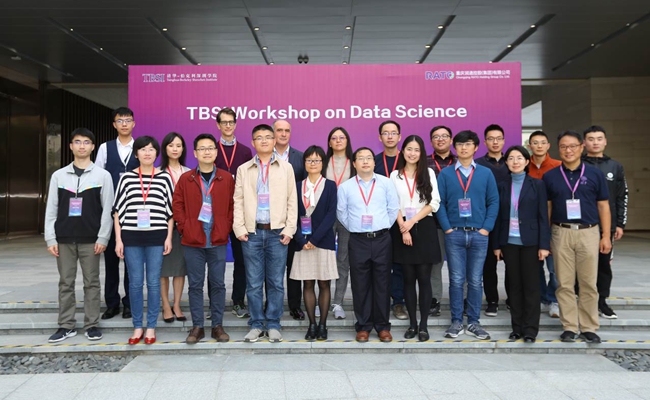
Group photo of invited speakers, TBSI professors and staff.
During the opening ceremony, Professor Shaolun Huang introduced the goal of TBSI-WODS, which is to focus on scientific research discussion and industry-university-research integration.

TBSI Professor Shaolun Huang hosting the WODS opening ceremony
Keynote speeches over the three days were delivered by Professor Stark Draper from University of Toronto on “Large Scale Linear Programming Decoding via the Alternating Direction Method of Multipliers”, Professor Xin Guo from University of California, Berkeley on “Mean Field Games, GANs and Learning”, and TBSI Guest Professor Ercan E. Kuruoglu on “Time-varying Graph Modelling Using Sequential Monte Carlo”.
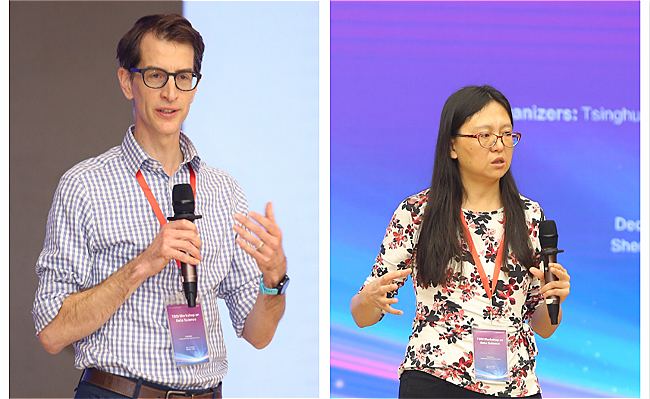
Prof. Stark Draper (left) and Prof. Xin Guo (right) giving their keynote speech.
Invited speakers gave presentations around topics of data science and optimization theories, machine learning, hypothesis testing and coding theory. Speakers also joined TBSI hosts in a workshop committee meeting to brainstorm future TBSI workshops on learning theory and data science.
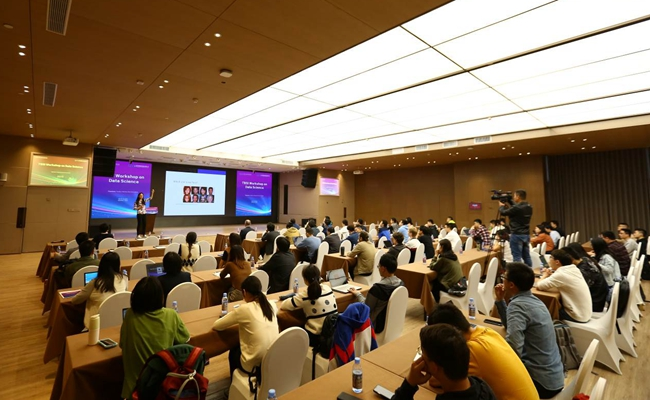
Audience actively engaging in discussion with speakers.
In the afternoon of December 17, the RATO forum on “The Future ofArtificial Intelligence in Industries” was held, where guests discussed theapplication of AI in the manufacturing industry with RATO representatives. The last event of the day was an open panel discussion, where Professor Ercan E. Kuruoglu, Stark Draper, Qixing Huang and Yao Xie shared their thoughts on emerging topics such as the future of AI and autonomous driving. They also gave advice on issues of student concern, such as how to publish a high-quality paper, how to determine one's research direction, and which courses are most important for prospective data scientists.

Panelists speaking at the open panel discussion (from left):Shaolun Huang, Ercan.E.Kuruoglu, Yao Xie, Stark Draper, Qixing Huang
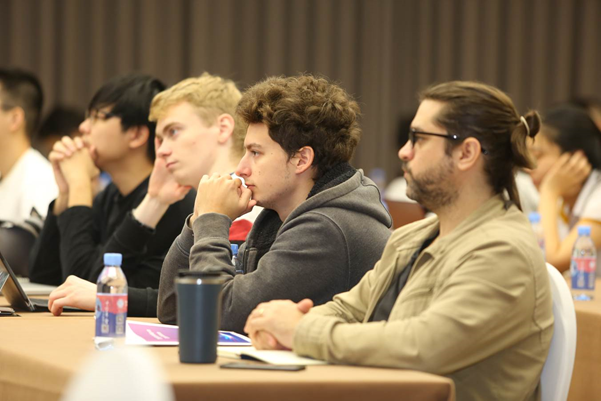
Students listening attentively
The “Boffin Talks” StudentResearch Competition was also held as part of TBSI-WODS on December 18 and 19.The competition was divided into three sessions: “Machine Learning andOptimization”, “Applications in AI, Smart City and Social Science” and“Applications in Health and Energy”. During each session, students gave15-minute presentations of their work and answered questions from judges andthe audience.
Best Presentation Award was awarded to Alberto Pepe, whileMingyang Liu and Yuanxiong Cao won Best Interdisciplinary Award. First, secondand third places of the Best Student Research Award were presented to Guodong Li,Zifeng Wang and Yiming Li respectively.
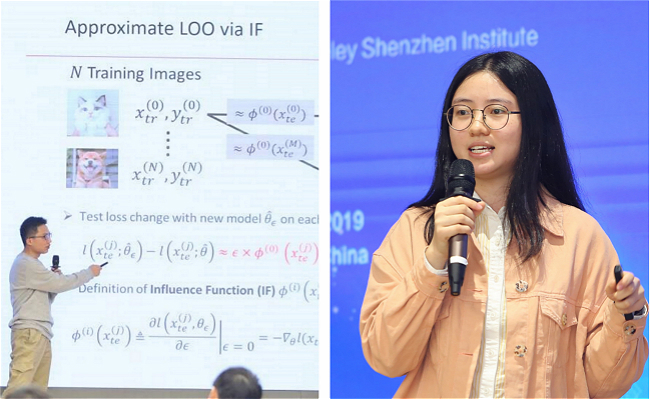
Students presenting their work at the Boffin Talks Competition
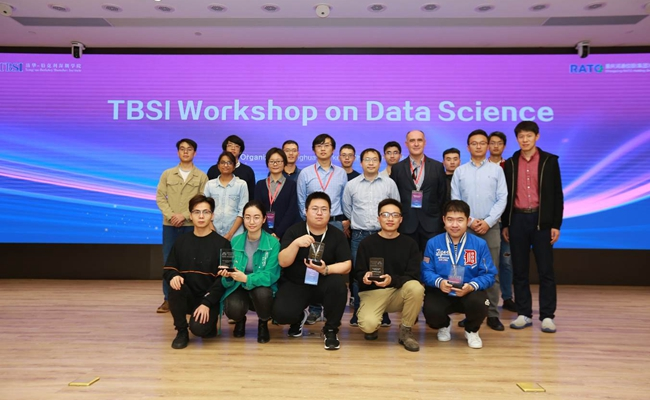
WODSprofessors with award-winning students
On the night of December 20, thefirst over-night hackathon NOAH (Night Owl AI Hackathon) of WODS began. The12-hour hackathon saw 22 students across eight teams compete to analyze anddeliver their most interesting insights from three given datasets. Teamspresented their works to the panel of judges the following morning and winnerswere announced.
TBSI-WODS aims to create a platform for frontierresearchers in the field of data science to share their cutting-edge ideas onopen problems and to facilitate the fostering of research collaborationsbetween researchers and students.
Articleby Ziwu Song, Shivaranjani,Weijia Feng, Fei Ma
Editedby Karen Lee



